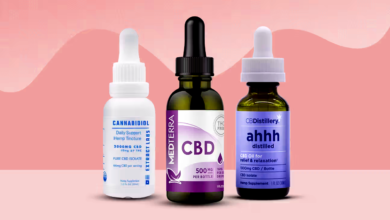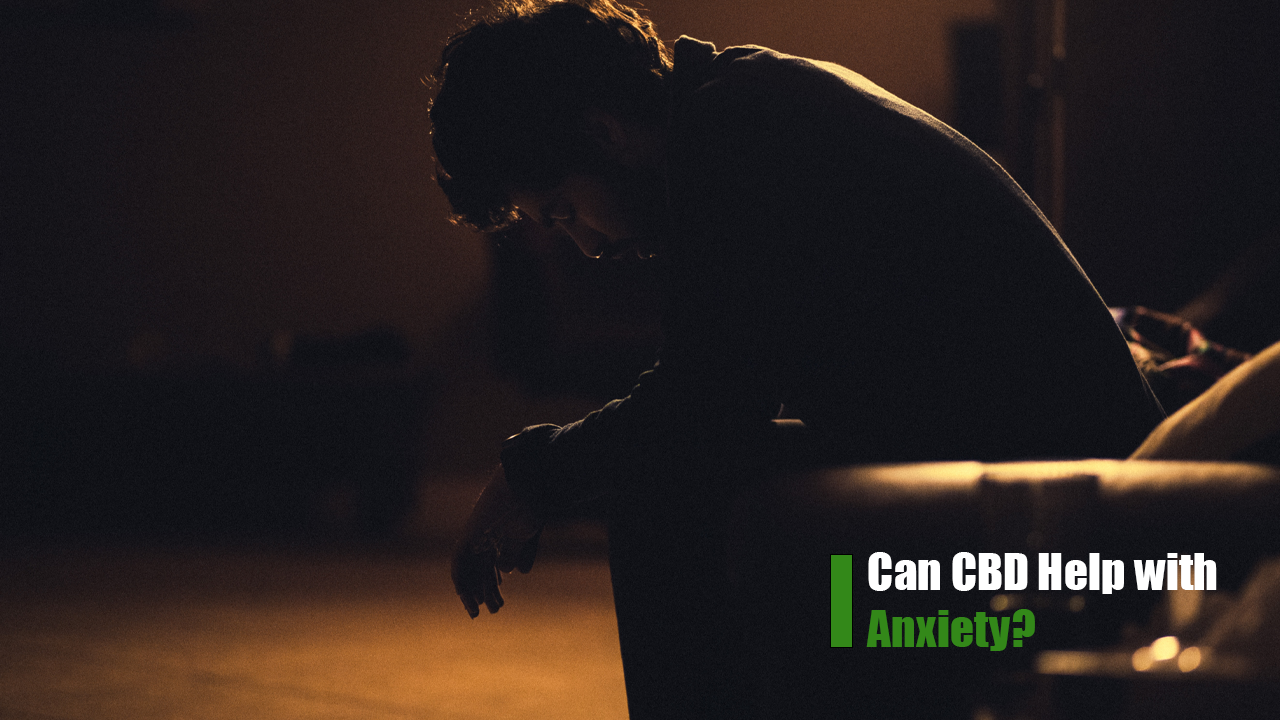CBD for Sleep: Can It Really Improve Your Rest?
In this article, we'll explore the benefits of CBD for sleep, how it works, its effectiveness, and the best ways to use it for better rest.

In today’s fast-paced world, getting a good night’s sleep can be challenging. Millions of people struggle with insomnia, restless nights, or disrupted sleep cycles. With the rise of natural remedies, many have turned to CBD (cannabidiol) as a potential solution for improving sleep quality. But does CBD for sleep really work? Can it truly enhance your rest? In this article, we’ll explore the benefits of CBD for sleep, how it works, its effectiveness, and the best ways to use it for better rest.
Explore the Contents
Understanding CBD and Its Role in Sleep
CBD is a non-psychoactive compound derived from the cannabis plant. Unlike THC (tetrahydrocannabinol), CBD does not produce a “high” sensation. Instead, it interacts with the body’s endocannabinoid system (ECS), which plays a crucial role in regulating various physiological processes, including sleep.
How Does CBD Work for Sleep?
CBD may promote better sleep by interacting with the ECS and influencing factors that affect sleep, such as:
- Reducing anxiety and stress: anxiety is one of the leading causes of sleep disturbances. CBD has been shown to have calming effects on the nervous system, helping to reduce anxiety and stress, which can contribute to a more restful sleep.
- Pain and Inflammation Relief: Chronic pain can make it difficult to fall asleep or stay asleep. CBD has anti-inflammatory and pain-relieving properties that may help individuals suffering from conditions like arthritis, migraines, and fibromyalgia sleep better.
- Regulating sleep cycles: CBD may help regulate circadian rhythms and improve sleep cycles by interacting with brain receptors involved in sleep-wake regulation.
- Promoting Deep Sleep: Some studies suggest that CBD can increase deep sleep (slow-wave sleep), which is essential for physical and mental restoration.
Scientific Evidence on CBD for Sleep

Although research on CBD and sleep is still in its early stages, several studies indicate promising results:
- A 2019 study published in The Permanente Journal found that 66.7% of participants reported improved sleep after using CBD for one month.
- Research from the Journal of Clinical Pharmacology suggests that CBD may help individuals with insomnia fall asleep faster and stay asleep longer.
- A 2020 review published in Frontiers in Pharmacology highlights CBD’s potential role in treating REM sleep behavior disorder (RBD) and excessive daytime sleepiness.
While these findings are encouraging, more clinical trials are needed to confirm CBD’s long-term effects on sleep.
Best Ways to Use CBD for Sleep
There are several ways to take CBD, and choosing the right method depends on individual preferences and desired effects.
1. CBD Oil and Tinctures
CBD oil is one of the most popular and effective ways to take CBD for sleep. When taken sublingually (under the tongue), it allows for quick absorption into the bloodstream. This method provides fast-acting relief and is ideal for those who have trouble falling asleep.
2. CBD Gummies and Edibles
CBD-infused gummies and edibles are a convenient and tasty way to consume CBD. However, they take longer to work (30–60 minutes) because they must pass through the digestive system. They are ideal for individuals who need long-lasting effects throughout the night.
3. CBD Capsules
CBD capsules offer precise dosing and are easy to incorporate into a nightly routine. Like edibles, they take longer to kick in but provide prolonged effects.
4. CBD Vapes
Inhalation through vaping allows for rapid absorption, making it suitable for individuals who need immediate relief. However, vaping may not be the best option for everyone due to potential lung health concerns.
5. CBD Topicals
While primarily used for pain relief, some CBD-infused creams and balms can be applied to areas of tension before bed to promote relaxation.
Dosage: How Much CBD Should You Take for Sleep?
The optimal CBD dosage varies depending on individual factors such as body weight, metabolism, and severity of sleep issues. However, general guidelines suggest:
- Low Dose (10-20 mg): Suitable for beginners or those with mild sleep disturbances.
- Moderate Dose (20-50 mg): Recommended for individuals with moderate sleep issues or anxiety-related insomnia.
- High Dose (50-100 mg): May be beneficial for those with chronic insomnia or severe sleep disorders.
It is always advisable to start with a low dose and gradually increase until the desired effects are achieved.
Potential Side Effects and Safety Considerations
CBD is generally well-tolerated, but some individuals may experience mild side effects, including:
- Dry mouth
- Drowsiness during the day
- Changes in appetite
- Gastrointestinal issues
CBD may also interact with certain medications, so it is recommended to consult a healthcare provider before using it, especially for individuals taking prescription drugs.
Choosing the Right CBD Product for Sleep
When selecting a CBD product, consider the following factors:
- Full-Spectrum vs. Broad-Spectrum vs. Isolate: Full-spectrum CBD contains all cannabinoids, including trace amounts of THC, which may enhance the sleep-promoting effects (entourage effect). Broad-spectrum CBD has multiple cannabinoids but no THC, while CBD isolate contains only pure CBD.
- Third-Party Testing: Always choose products that have been tested by independent laboratories to ensure purity and potency.
- Organic and high-quality ingredients: Look for CBD products made from organically grown hemp without harmful additives.
Final Thoughts
CBD for sleep shows promising potential, especially for those struggling with anxiety, pain, or sleep disorders. While research supports its effectiveness, individual results may vary. The key to success with CBD for sleep lies in selecting the right product, dosage, and consumption method.If you are considering CBD for sleep, start with a low dose, monitor your body’s response, and consult a healthcare professional if necessary. With the right approach, CBD could be a natural and effective way to achieve better, more restful sleep.





